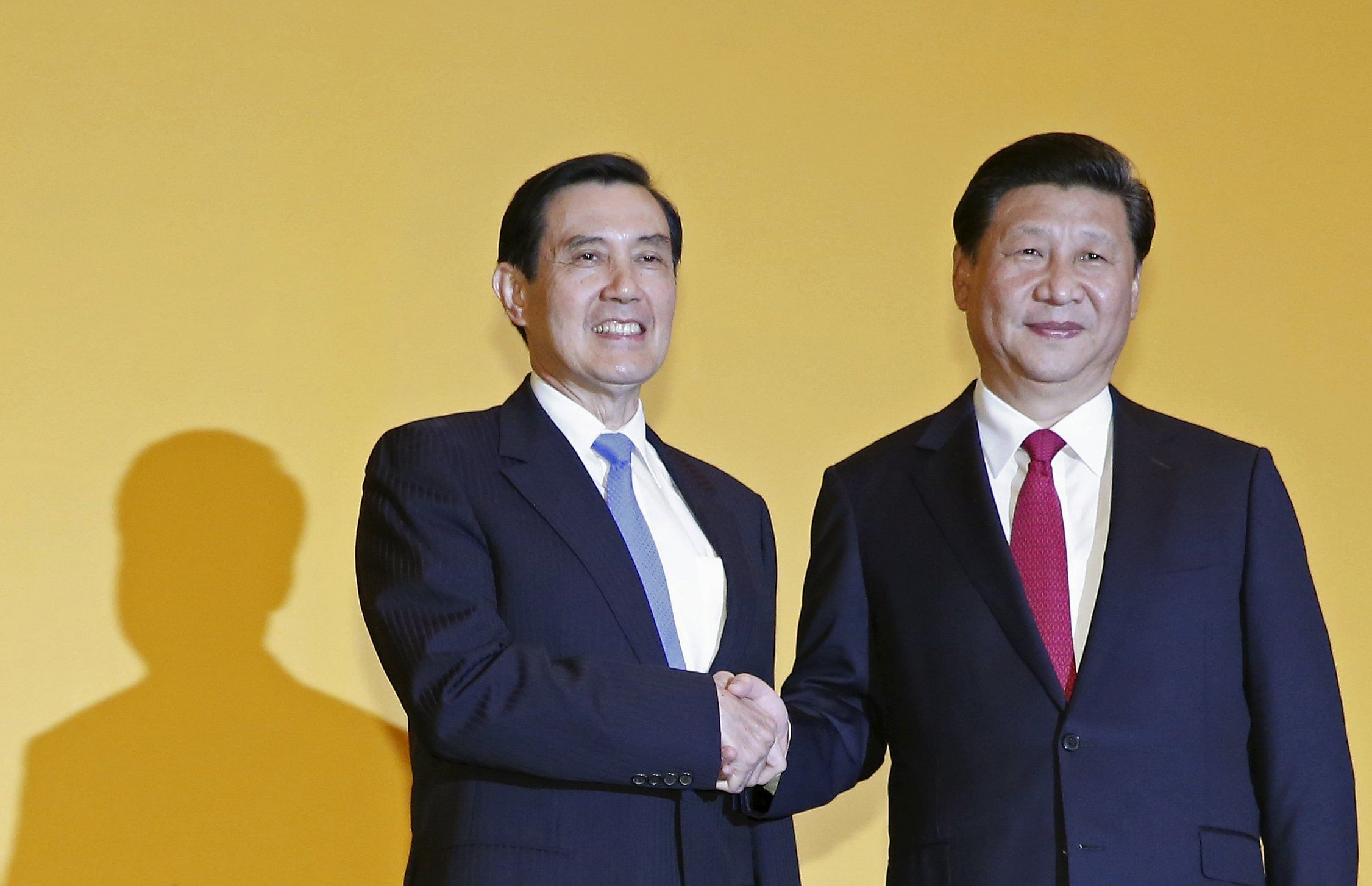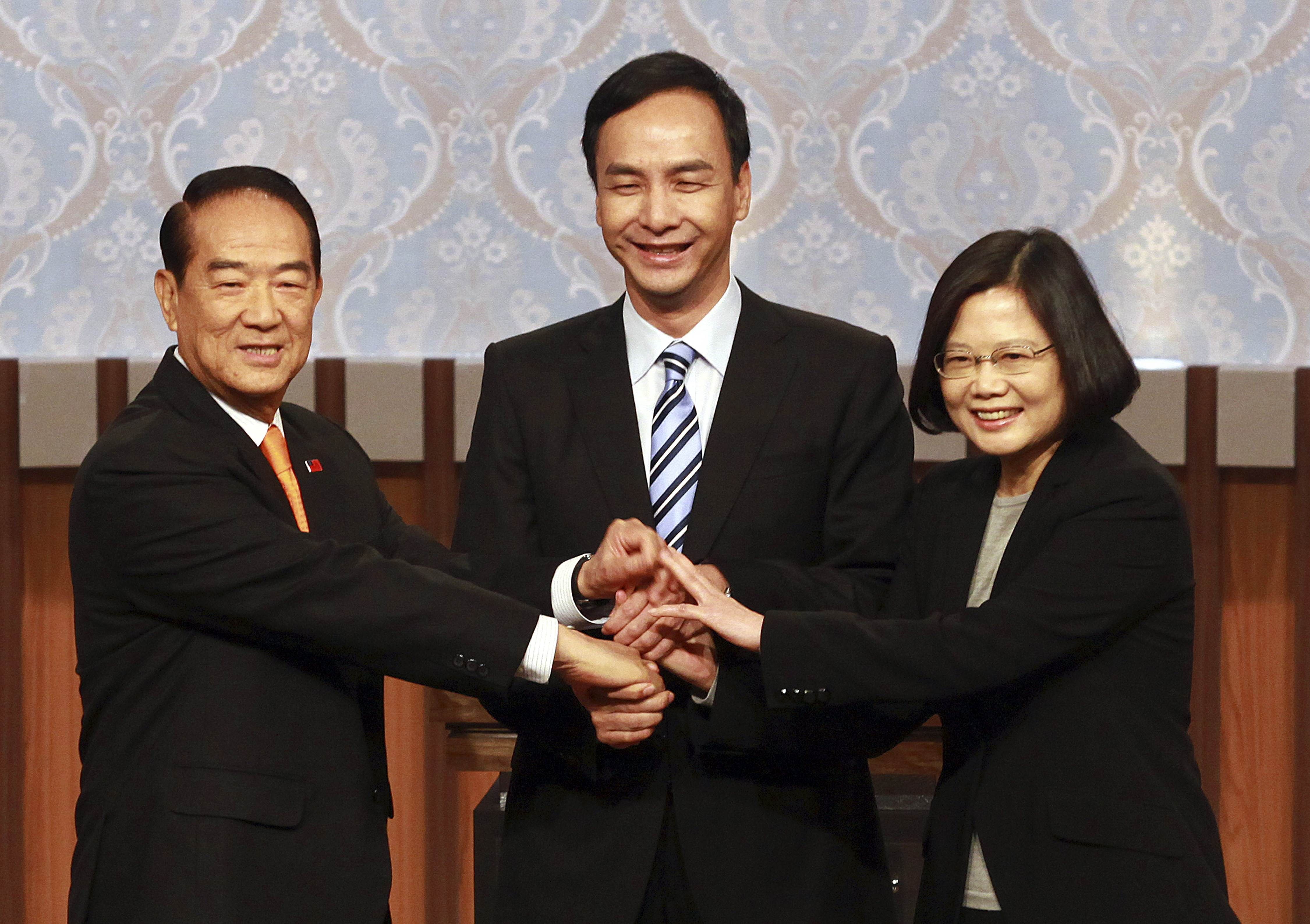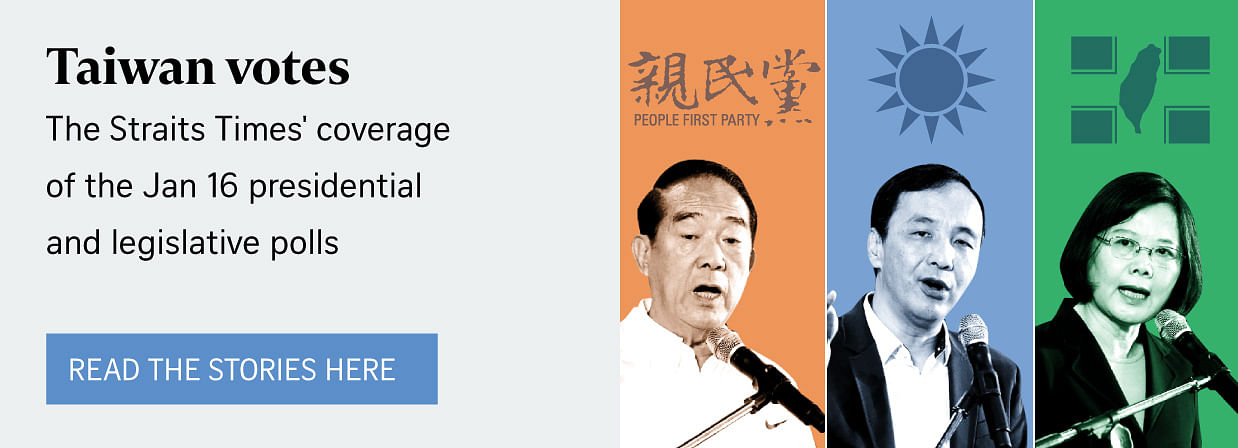Taiwan goes to the polls on Jan 16 to pick the island's next president and a new parliament.
It is the first major polls on the island since the youth-led Sunflower Movement in 2014 and local elections the same year. The upcoming elections will also be closely watched in Beijing, Hong Kong and the rest of the world.
Here's a look at the stakes involved:
1. Impact on cross-strait ties
Ms Tsai Ing-wen, who leads Beijing-sceptic opposition Democratic Progressive Party (DPP), is tipped to unseat the Beijing-friendly Kuomintang (KMT) party, to become the second President from the DPP after disgraced leader Chen Shui-bian.
This will no doubt impact cross-strait relations which have steadily warmed since President Ma Ying-jeou of KMT took office in 2008. Mr Ma's face-to-face meeting with Chinese leader Xi Jinping in Singapore in November 2015 marked a historic milestone in cross-strait relations since the end of civil war in 1949.
Ms Tsai, 59, a former law professor, has said she wants to maintain the "status quo" in cross-strait relations.
However, she has declined to specify if she accepts the so-called 1992 Consensus that there is one China with the two sides having different interpretations of what this means.
Beijing insists the consensus is the only framework under which cross-strait talks and exchanges can occur. The KMT accepts the consensus, which Mr Ma had described as a "mastery of ambiguity".

Ms Tsai has stated that she will "push for the peaceful and stable development of cross-strait relations" in accordance with the Taiwanese people's wishes and the island's Constitution.
She is said to be one of the masterminds behind former Taiwan President Lee Teng-hui's two-states theory in 1999, which angered China so much that semi-official cross-strait exchanges that had begun in 1993 ground to a halt.
China regards Taiwan as its territory, and has not renounced force to seize it should the latter declares independence. This in turn will affect the most important relationship in the world, between China and the United States.
Washington is obligated to help Taiwan defend itself, under the Taiwan Relations Act of 1979, when Washington severed formal ties with the island to recognise the People's Republic of China in Beijing.
2. Taiwan could see its first Madam President
If Ms Tsai was a reluctant candidate during the 2012 presidential race, this time she has transformed into a seasoned politician who has earned the respect of her party's bigwigs.
Speaking at a forum in Washington in June 2015, Ms Tsai said that the Taiwanese face a "serious test" in the elections on "whether we are advanced and civilised enough to accept a woman leader".
"Gender used to be a barrier for a woman to overcome when they wanted to be in politics. Today in Taiwan, the situation is somewhat different," said Ms Tsai, who has a doctorate from the London School of Economics.
"Of course there are some people in Taiwan who are still rather traditional and have some hesitation to consider a woman leader. But I think the young people are generally excited about the idea of having a woman to lead the country. They think it is rather trendy."

Should she win the presidential race on Jan 16, she will be one of the first woman leaders in the region not related or affiliated to a political family dynasty.
Taiwan would also become the latest in a series of Asian nations to have elected a female leader, following the footsteps of South Korea, the Philippines and Thailand.
3. DPP could also gain control of legislature
For the first time since 1949, the opposition DPP could gain control of both the executive and legislative branches.
Parliament acts as a check on the president, and so if the DPP emerges triumphant in both races, the party will be firmly in control of the government.
Under such circumstances, ties between both sides of the Taiwan Strait will likely enter a trough.
But this could also mean that Ms Tsai will face less resistance in introducing and implementing her reforms.

More than 530 candidates are vying for the 113 parliamentary seats up for grabs.
Beyond the traditional KMT-DPP rivalry, one thing to watch is the emergence of the so-called Third Force, or small parties which tend to focus on social issues. In particular, the New Power Party, which was formed by young activists in the wake of the Sunflower movement, has scored various high profile candidates.
Ms Tsai has promised to step up communication and collaboration with these parties if the DPP wins.


